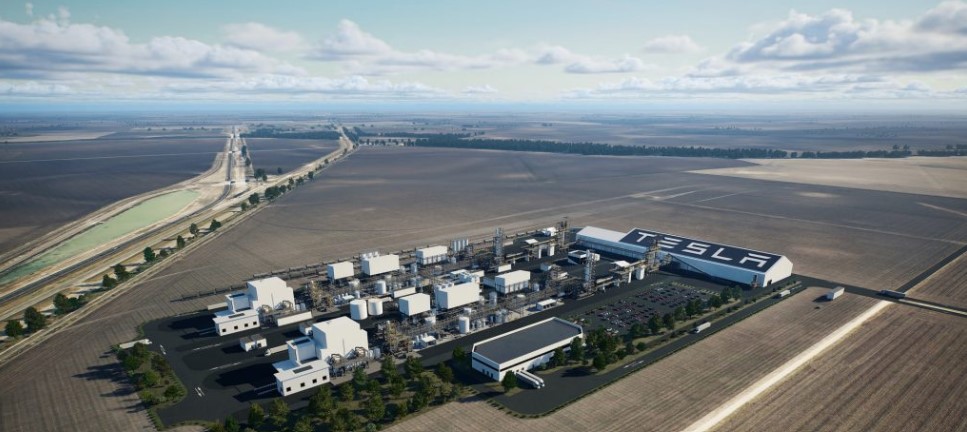Tesla is making significant progress toward launching its Full Self-Driving (FSD) technology in China. This action can potentially change the autonomous driving landscape in one of the world's largest car markets. According to a recent report, Tesla is actively preparing to register its FSD system with Chinese authorities, a vital step toward launching the advanced …
Tesla Prepares for Full Self-Driving Rollout in China

Tesla is making significant progress toward launching its Full Self-Driving (FSD) technology in China. This action can potentially change the autonomous driving landscape in one of the world’s largest car markets. According to a recent report, Tesla is actively preparing to register its FSD system with Chinese authorities, a vital step toward launching the advanced driver-assist function later this year.
Registration with Authorities
Three people familiar with the situation indicated that Tesla wants to get FSD certified by Chinese regulators. This step is critical to Tesla’s plans to launch its advanced driver-assist system in China later this year. According to insiders, Tesla is mulling a subscription approach for FSD in China.
If the registration is successful, Tesla employees will begin testing the FSD on public roads in China. This step is critical to ensuring the system’s performance and safety in real-world scenarios. Tesla now only offers Basic and Enhanced Autopilot in China.
Existing Autopilot Options
Tesla presently provides two versions of its Autopilot system in China: Basic Autopilot and Enhanced Autopilot. These systems offer varied levels of driver assistance, intending to improve both the driving experience and safety.
Basic Autopilot
Basic Autopilot comes standard with every Tesla vehicle sold in China. It includes crucial features for everyday driving. These features include the following:
- Traffic-Aware Cruise Control: This feature automatically changes the car’s speed to keep a safe distance from the vehicle ahead.
- Autosteer: This feature keeps the vehicle aligned in its lane, minimizing driver fatigue and boosting safety on extended travels.
Enhanced Autopilot
Enhanced Autopilot is an optional upgrade that costs RMB 32,000 (about $4,400). It expands on the Basic Autopilot by adding more complex functions, including:
- Navigate on Autopilot: This feature directs the vehicle from on-ramp to off-ramp, recommending lane changes and negotiating interchanges based on the location set into the navigation system.
- Auto Lane Change: This function allows the car to change lanes automatically when the driver uses the turn signal, making highway travel more convenient and less stressful.
- Autopark: This assists with parallel and perpendicular parking by controlling the steering, acceleration, and braking during the parking maneuver.
- Summon: This technology, managed via the Tesla mobile app, allows the car to navigate in and out of tight areas without the driver at the wheel.
Limitations of Current Options
While Basic and Enhanced Autopilot provides significant convenience and safety benefits, they do not contain the Full Self-Driving (FSD) system’s most advanced feature, Autopilot on City Streets. This functionality enables the car to negotiate urban areas autonomously, including stop signs, traffic lights, and complex city traffic scenarios.
FSD’s ability to negotiate city streets could transform urban driving for Tesla customers in China. In a market with numerous competitors offering systems similar to Basic and Enhanced Autopilot, FSD might provide Tesla with a major advantage.
Subscription Model and Sales
Tesla currently sells FSD for a one-time fee of 64,000 yuan ($8,828). The company is also exploring a monthly subscription model, potentially priced around $98. Introducing FSD as a subscription service could attract more users and provide a new revenue stream for Tesla.
Competitive Landscape
China’s electric vehicle market is fiercely competitive, with multiple automakers offering superior driver assistance technologies. Companies like Huawei and Xpeng offer level-two autonomous driving capabilities akin to FSD. Some competitors, such as Li Auto and Xpeng, include these capabilities for free on high-end versions, while others, like Nio, offer free trial periods.
Strategic Advantage
Unlike typical rule-based algorithms, Tesla’s FSD is powered by a powerful end-to-end neural network. This strategy enables Tesla’s system to learn faster and make more human-like driving decisions. Tesla also uses its extensive network of vehicles and the powerful Dojo supercomputer to improve FSD continuously.
The introduction of FSD in China would represent a significant upgrade over these existing options, potentially offering a more comprehensive and autonomous driving experience that could set Tesla apart from its competitors in the Chinese market.
Subscribe to Our Newsletter
Keep in touch with our news & offers










